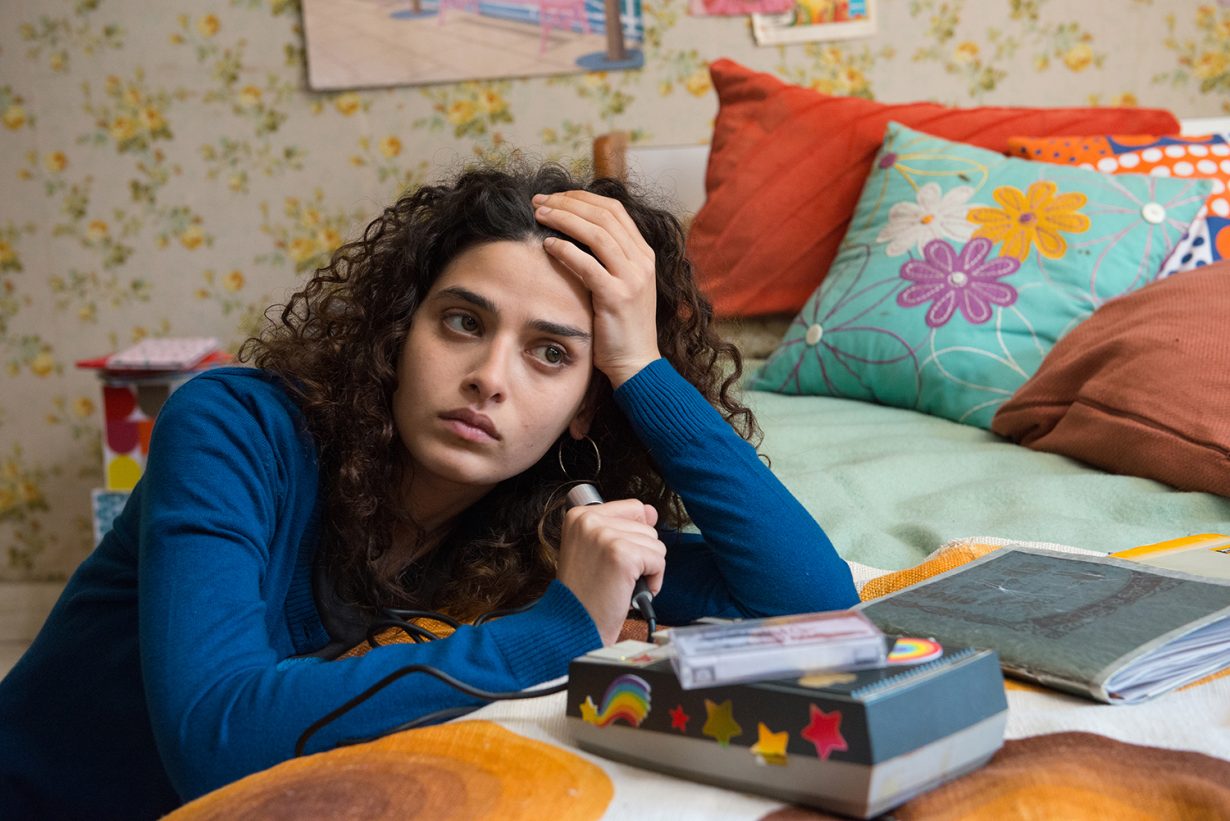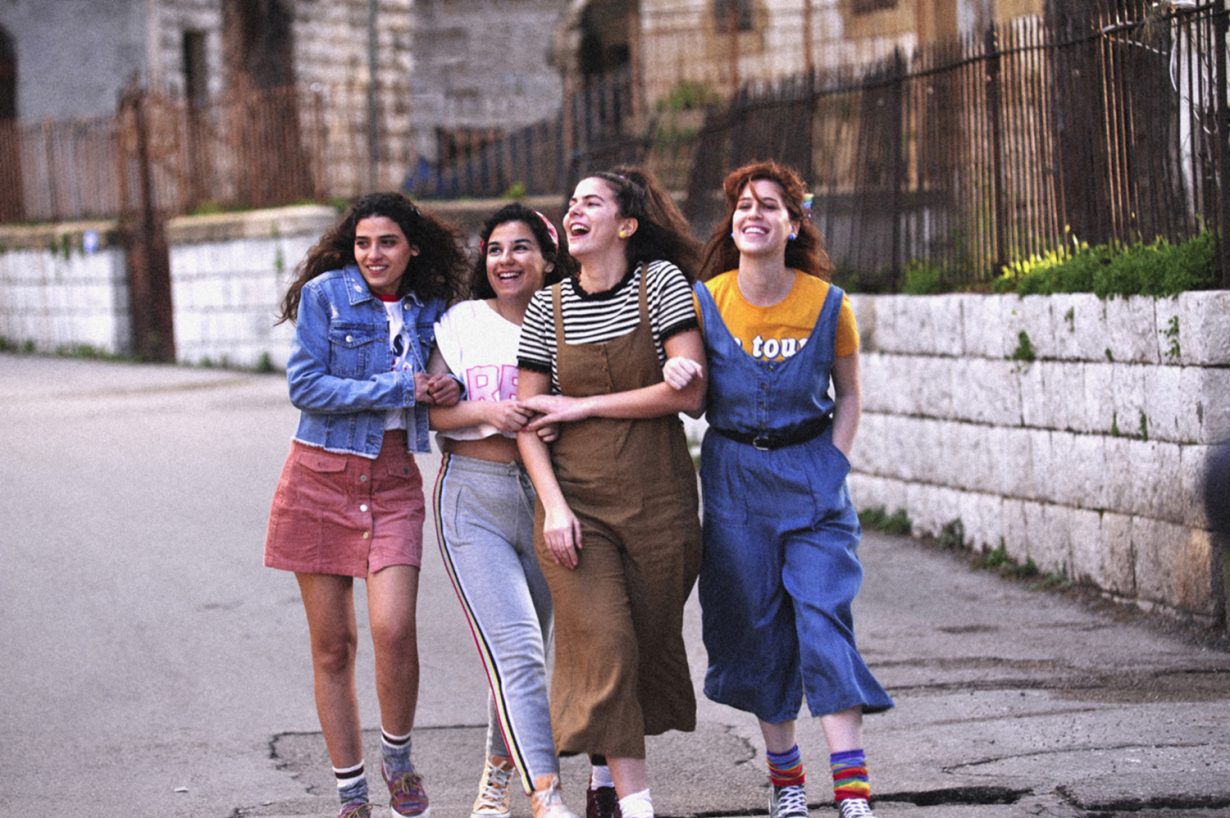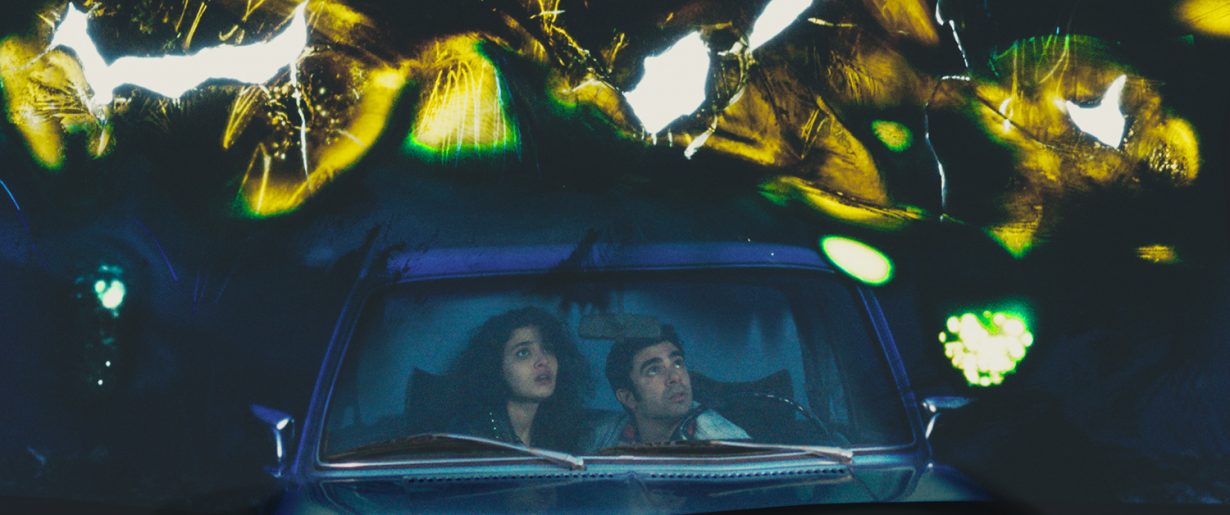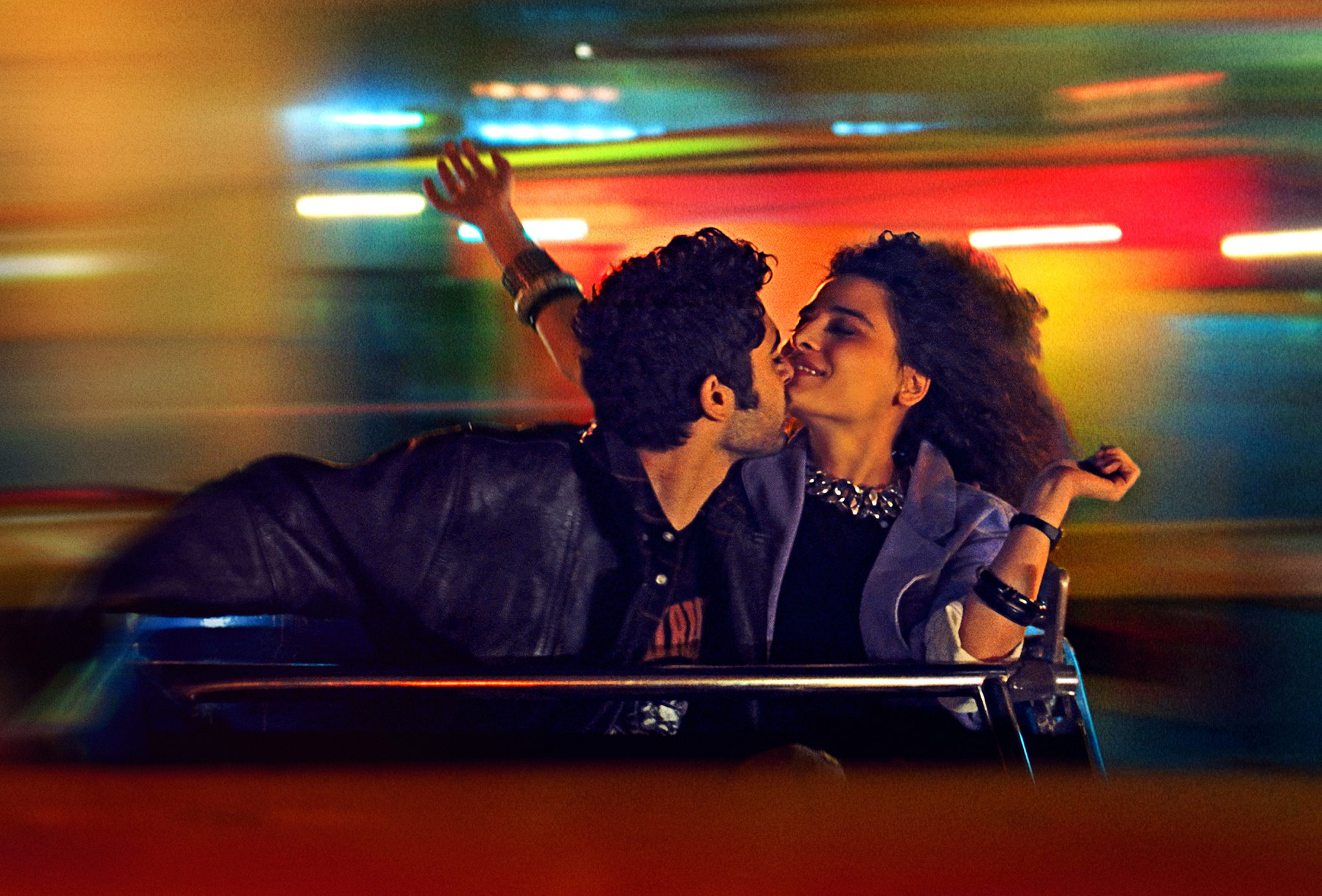Joana Hadjithomas and Khalil Joreige’s film is preoccupied with things that are left unsaid
An intergenerational family of immigrant Lebanese women – daughter Alex, mother Maia and grandmother Teta – gather in Montreal to celebrate Christmas. The season of goodwill is interrupted, however, when Maia receives an unexpected box sent on behalf of a long-lost, and recently deceased, friend, Liza. Its contents – which include Maia’s personal notebooks, photographs, cassette tapes and other ephemera written by her to Liza, who had moved to Paris during the 1980s – and Liza’s death not only interrupt the festivities, but also fracture the peace that the family had found in Canada after fleeing Beirut and the Lebanese Civil War. The box tears through Maia’s memories, releasing everything she has supressed over the past 30 years. And Maia’s refusal to share these materials, both with her daughter and the viewer, forces Alex to explore them in secret.

This is Memory Box (2021), a film directed by artists Joana Hadjithomas and Khalil Joreige that activates the senses to fully immerse the viewer in Maia’s world. As Alex’s hands rifle through pages of Maia’s archives, so too do ours. As she plays the cassette tapes recorded by the younger Maia, her voice lures us into the present of her past. Even the small scratch’n’sniff sticker of a strawberry set in the corner of one of her pages points to a small but notable detail of youth that augments the viewer’s immersion.
There is a tangible electricity in knowing these materials have actually time-travelled from the past – the film’s opening credits inform the viewer that this story is adapted from, and features, Hadjithomas’s own ephemera from 1982 to 1988 (with added flourishes for the film, of course); and that Joreige’s own archive of photographs from the war is also integrated into the film. What we are witnessing is a blend of real and imagined narratives. An intersection that Hadjithomas and Joreige further explore by physically manipulating the film as medium to mirror the plot’s distress: for example at a turning point in the film, Maia’s boyfriend Raja shoots a rifle to the top left of the screen in celebration of a football match, and in this corner of the frame the film itself begins to melt. Afterwards the pair are kissing in a car while rockets explode in the background. The sky above them begins to deteriorate as the physical film melts again – indicating the moments when Maia is reminded of an omnipresent conflict that she has, for some time, been able to ignore.

Secrets pervade the film. Teta keeps Liza’s death from her daughter, and even attempts to hide the package from her; Maia keeps her past from Alex; Alex conceals her discovery of these notebooks. As for the viewer, we’re left wondering about what happened to whoever became Alex’s father and about who an unnamed man ‘introduced’ at the beginning of the film might be. Hadjithomas and Joreige’s preoccupation with latency or things that are left unsaid, as well as the cuts or conditions in which what is hidden can manifest, result in lacerations between the women that reveal these recollections of the war and free their familial ghosts (Maia’s brother and father were killed in the war) – the first being the box’s arrival.

Maia’s initial notebook entries include the usual adolescent musings about friends and love, but these are the moments that give the film – and Maia – levity and energy to persevere through the sufferings (among my favourites are the scenes where Maia and her friends dance carefreely to music from the 1980s). While Hadjithomas and Joreige described the project as a love letter to Lebanon, film and photography at the UK premiere, Memory Box feels more like a dedication to relationships and the solaces they can bring. Like many teenagers, young Maia turns to her friends (among them Liza) more than her parents, while Alex tells her friends that she knows nothing about Maia. Although Hadjithomas and Joreige’s artistic practice tends to critically engage in latent Lebanese histories through archival materials and photography, typically provoking a dominant sense of gravity, Memory Box surprised me with its bright and unexpected vivacity, despite the more serious moments of war, conflict and loss.
Joana Hadjithomas and Khalil Joreige, Memory Box, 2022, is in cinemas now and streaming online.
